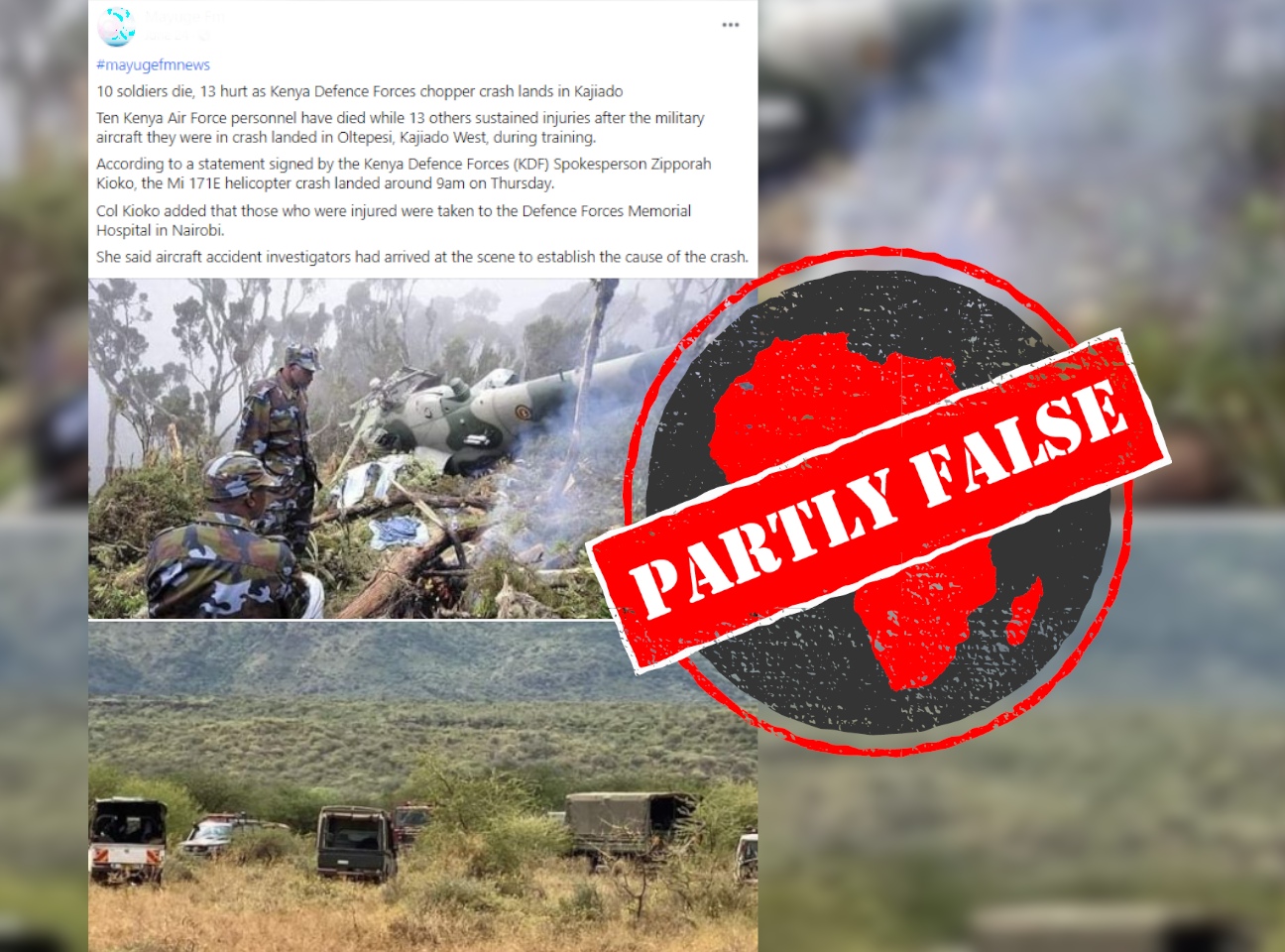Two photos have been posted on Facebook with the claim they show the aftermath of a fatal military helicopter crash in Kenya’s Kajiado county in June 2021.
In the first photo, two soldiers are standing next to a crashed helicopter. The other shows military vehicles parked in the bush.
Their caption begins: “10 soldiers die, 13 hurt as Kenya Defence Forces chopper crash lands in Kajiado. Ten Kenya Air Force personnel have died while 13 others sustained injuries after the military aircraft they were in crash landed in Oltepesi, Kajiado West, during training.”
Data from CrowdTangle, Facebook’s public insights tool, shows that the post has been shared with several public groups and pages, prompting thousands of interactions.
A Kenyan military helicopter did crash on 24 June 2021, killing 11 soldiers.
The Facebook post includes a statement from the military. But were the two photos taken at the crash site? We checked.

Ugandan choppers found on Mount Kenya
A Google reverse image search of the first photo, of two soldiers at a crash site, reveals that it is nine years old.
It shows the wreckage of two Ugandan helicopters that went missing on 12 August 2012. They had taken off from an airbase in Entebbe, headed to Somalia to reinforce African Union forces. The downed helicopters was found on Mount Kenya by wildlife officers.
A Google reverse image search of the second photo, of military vehicles, reveals that it was snapped at the more recent helicopter crash site in Kenya.
The photo was taken by Nation Media Group journalist Vincent Achuka. Its caption reads: “Kenya Defence Forces personnel cordon off the scene of the military helicopter crash in Oletepesi, Kajiado West on 24 June, 2021. Ten Kenya Air Force soldiers died in the crash.”
Only one of the photos shows the helicopter crash site in Kenya, in June 2021. The other is of a 2012 crash of Ugandan craft.
Republish our content for free
For publishers: what to do if your post is rated false
A fact-checker has rated your Facebook or Instagram post as “false”, “altered”, “partly false” or “missing context”. This could have serious consequences. What do you do?
Click on our guide for the steps you should follow.
Publishers guideAfrica Check teams up with Facebook
Africa Check is a partner in Meta's third-party fact-checking programme to help stop the spread of false information on social media.
The content we rate as “false” will be downgraded on Facebook and Instagram. This means fewer people will see it.
You can also help identify false information on Facebook. This guide explains how.


Add new comment